Community Health Quality Recognition (CHQR) badges recognize Health Center Program awardees and look-alikes (LALs) that have achieved quality improvements in:
- Access
- Clinical Quality
- Health Outcomes
- Health Information Technology (HIT)
CHQR badges are awarded yearly based on the latest Uniform Data System (UDS) reporting year.
To earn a CHQR Badge, health centers must meet CHQR badge eligibility and the criteria outlined for each CHQR badge.
View the 2025 CHQR badge award recipients on the CHQR Dashboard.
Jump to:
- CHQR badge eligibility
- CHQR badge criteria, measures, and targets
- National Quality Leader (NQL) badges
- NQL – Behavioral Health badge
- NQL – Cancer Screening badge
- NQL – Diabetes Health badge
- NQL – Heart Health badge
- Health Center Quality Leader (HCQL) badges
- Other CHQR badges
- Preventive Health badge
- High-Value Care badge
- Improving Health Care Access badge
- Advancing HIT for Quality badge
- View badge awards
- Request high-quality badge images
CHQR badge eligibility
To be eligible for CHQR badges, health centers must:
- Be an active Health Center Program awardee or LAL.
- Submit complete and on-time UDS data by the February 15 deadline each CY.
- Receive acceptable UDS table ratings from UDS Reviewer.
- Resolve any progressive action conditions by June of the CY.
- Report on clinical quality measures (CQMs) and patient populations. Use an electronic health record (EHR) to do this. EHRs must be installed at all sites and used by all providers.
Eligible health centers will automatically receive consideration for CHQR badges.
CHQR badge criteria, measures, and targets
Changes to all CHQR badges, which will be awarded in CY 2025 for the 2024 UDS reporting period, include:
- Updated eligibility criteria to include acceptable UDS table ratings from UDS Reviewer.
- Updated thresholds, which determine the health centers that earn badges.
- Where applicable, Top Quartile Thresholds for each badge will be based on 2023 UDS data.
- Minimum CQM patient threshold of 30 patients, or where applicable, 16 patients.
- Updated criteria for National Quality Leader – Behavioral Health badge
- Updated criteria for National Quality Leader- Cancer Screening badge
- Updated criteria for the Advancing HIT for Quality badge
- New Preventive Health and High-Value Care badges
HRSA’s Bureau of Primary Health Care (BPHC) intends for CY 2025-2027 CHQR badge criteria to remain constant. 2024 UDS data will determine CY 2025 CHQR badges; 2025 UDS data will determine CY 2026 CHQR badges; and 2026 UDS data will determine 2027 CHQR badges.
National Quality Leader (NQL) badges
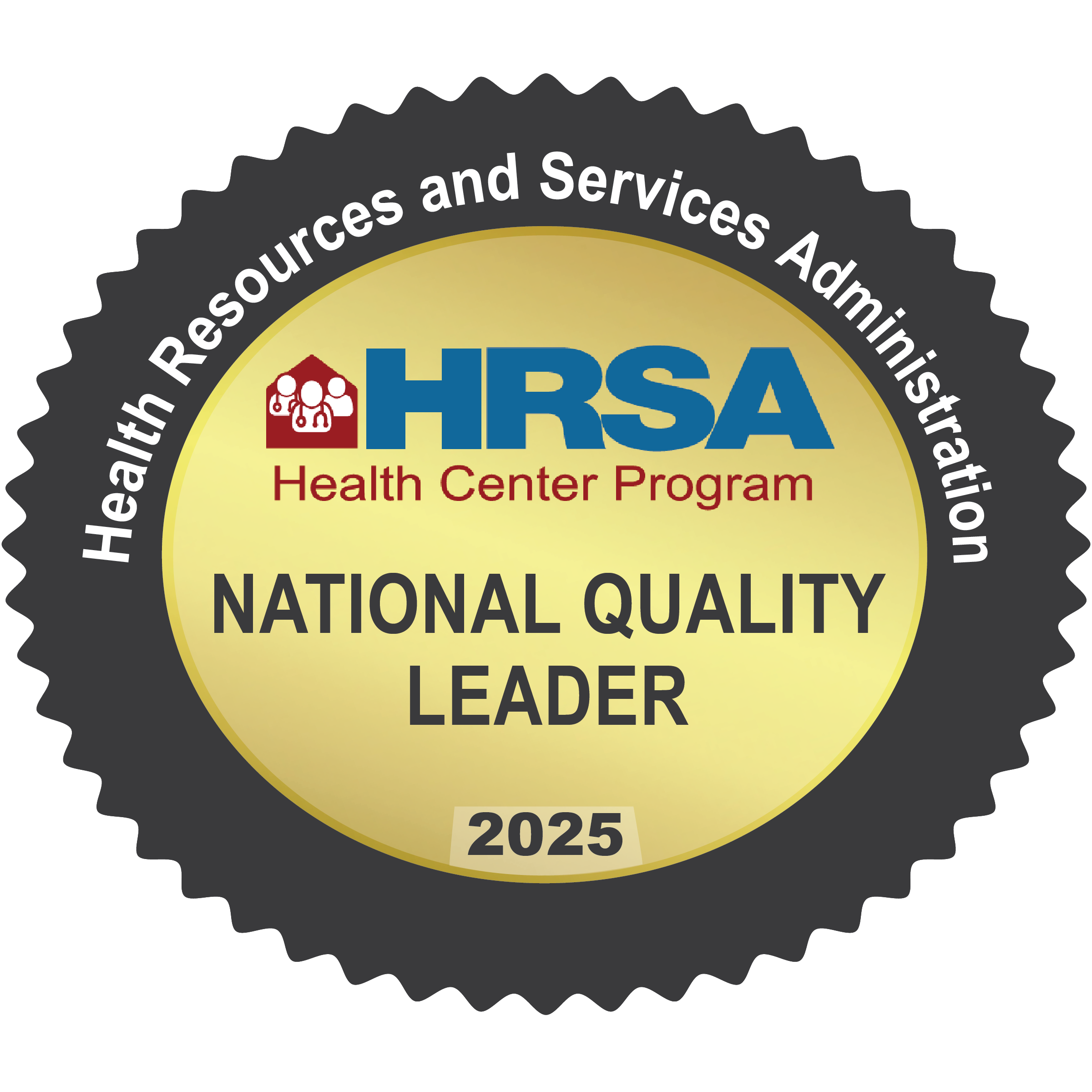
To earn NQL badges, health centers and LALs must:
- Meet or exceed national benchmarks for one or more of the CQM groups that promote:
- Behavioral health
- Cancer screening
- Diabetes health
- Heart health
- Report a minimum number of 30 patients in a CQM denominator for all NQL badges.
2025 NQL - Behavioral Health badge
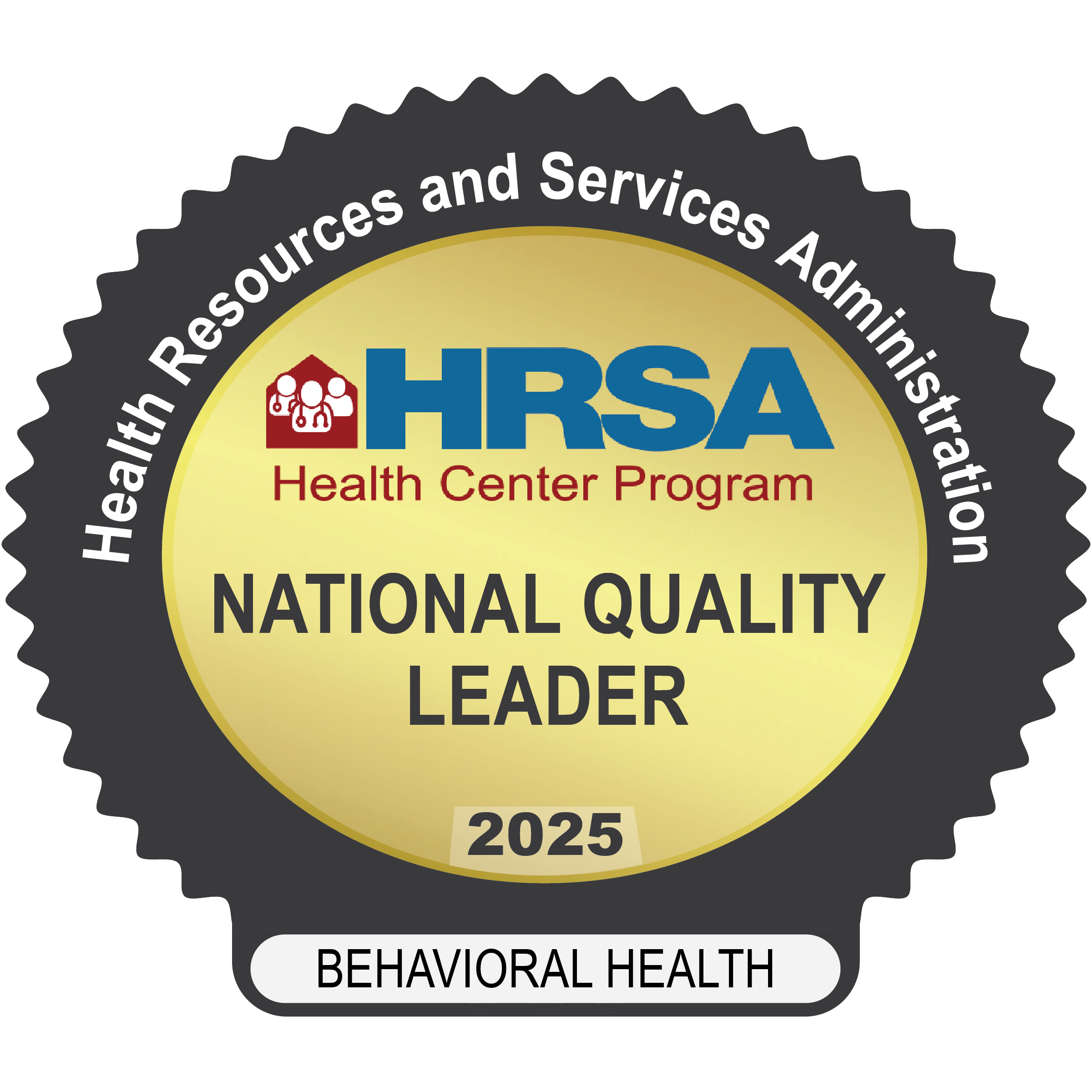
Criteria to earn NQL – Behavioral Health badge:
Meet or exceed at least two of the three measure targets
| Measure | Target |
|---|---|
| Depression remission at twelve months | 18.0% (Top quartile of 2023 UDS Data) |
| Screening for Depression and follow-up plan | 85.8% (Top quartile of 2023 UDS Data) |
| Screening, Brief Intervention, and Referral to Treatment (SBIRT) (Proportion of all patients receiving SBIRT) | At least 5.0% |
2025 NQL – Cancer Screening badge
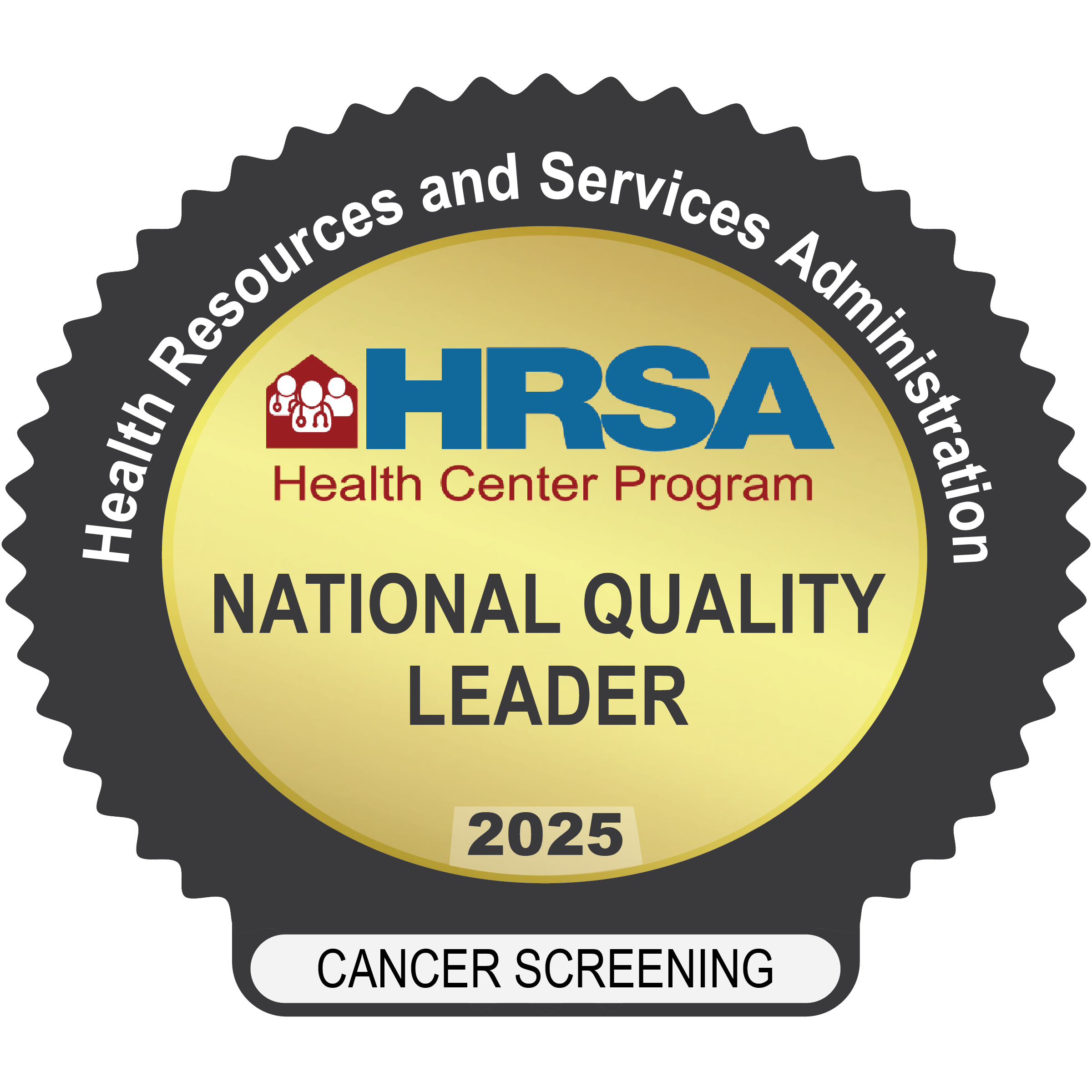
Critera to earn NQL – Cancer Screening badge:
Meet or exceed at least one of the three cancer screening targets
| Measure | Target |
|---|---|
| Breast Cancer Screening | 80.3% (Healthy People 2030 Target) |
| Cervical Cancer Screening | 79.2% (Healthy People 2030 Target) |
| Colorectal Cancer Screening | 72.8% (Healthy People 2030 Target) |
2025 NQL – Diabetes Health badge
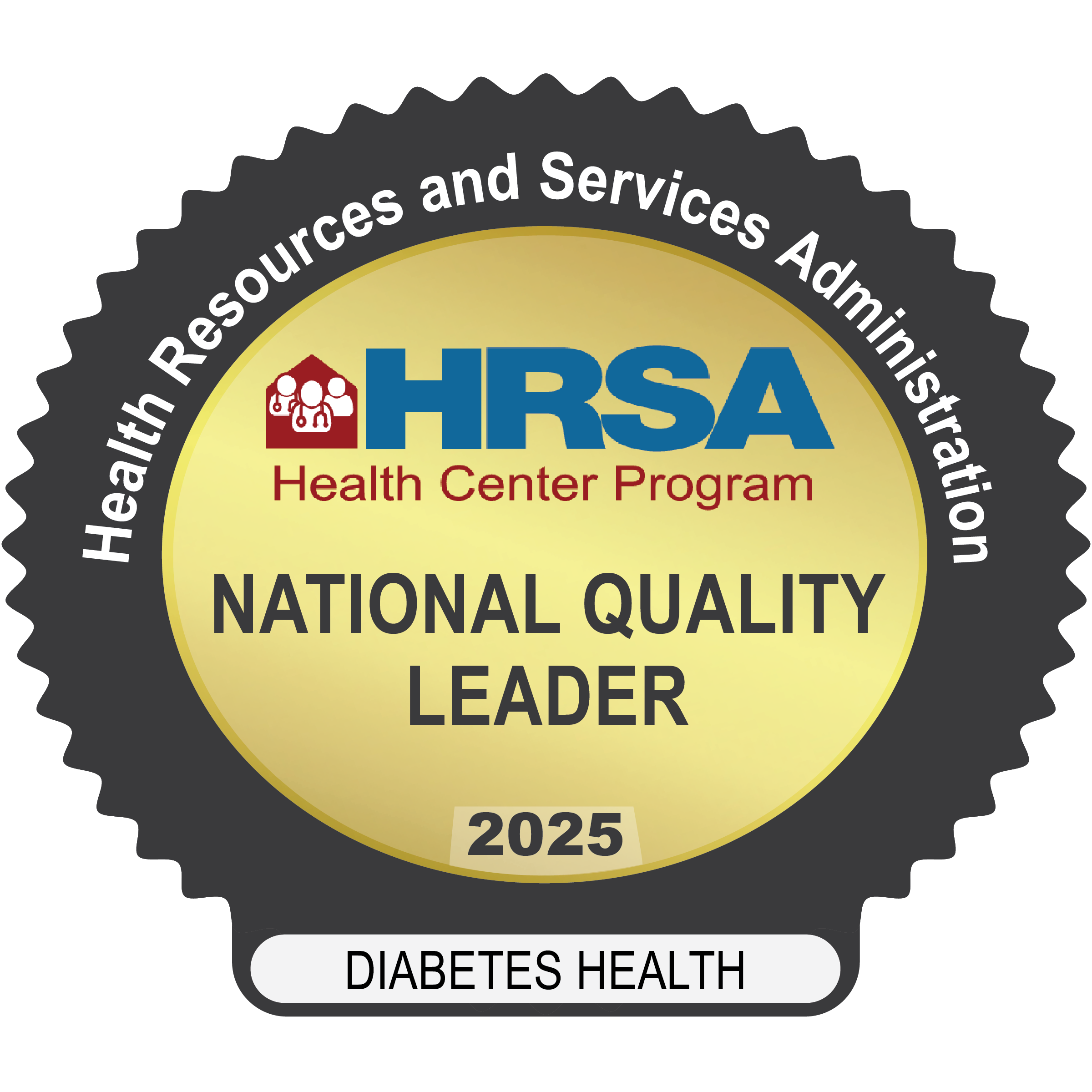
Criteria to earn Diabetes Health badge:
Meet or exceed two of the three measure targets
| Measure | Target |
|---|---|
| Adult Body Mass Index (BMI) screening and follow-up plan | 86.0% (Top quartile of 2023 UDS Data) |
| Weight assessment and counseling for nutrition and physical activity for children and adolescents | 85.0% (Top quartile of 2023 UDS Data) |
| Diabetes: Hemoglobin A1c (HbA1c) Poor Control (>9.0%) - Inverse Measure (uncontrolled diabetes) | 11.6% (Healthy People 2030 Target) |
2025 NQL - Heart Health badge
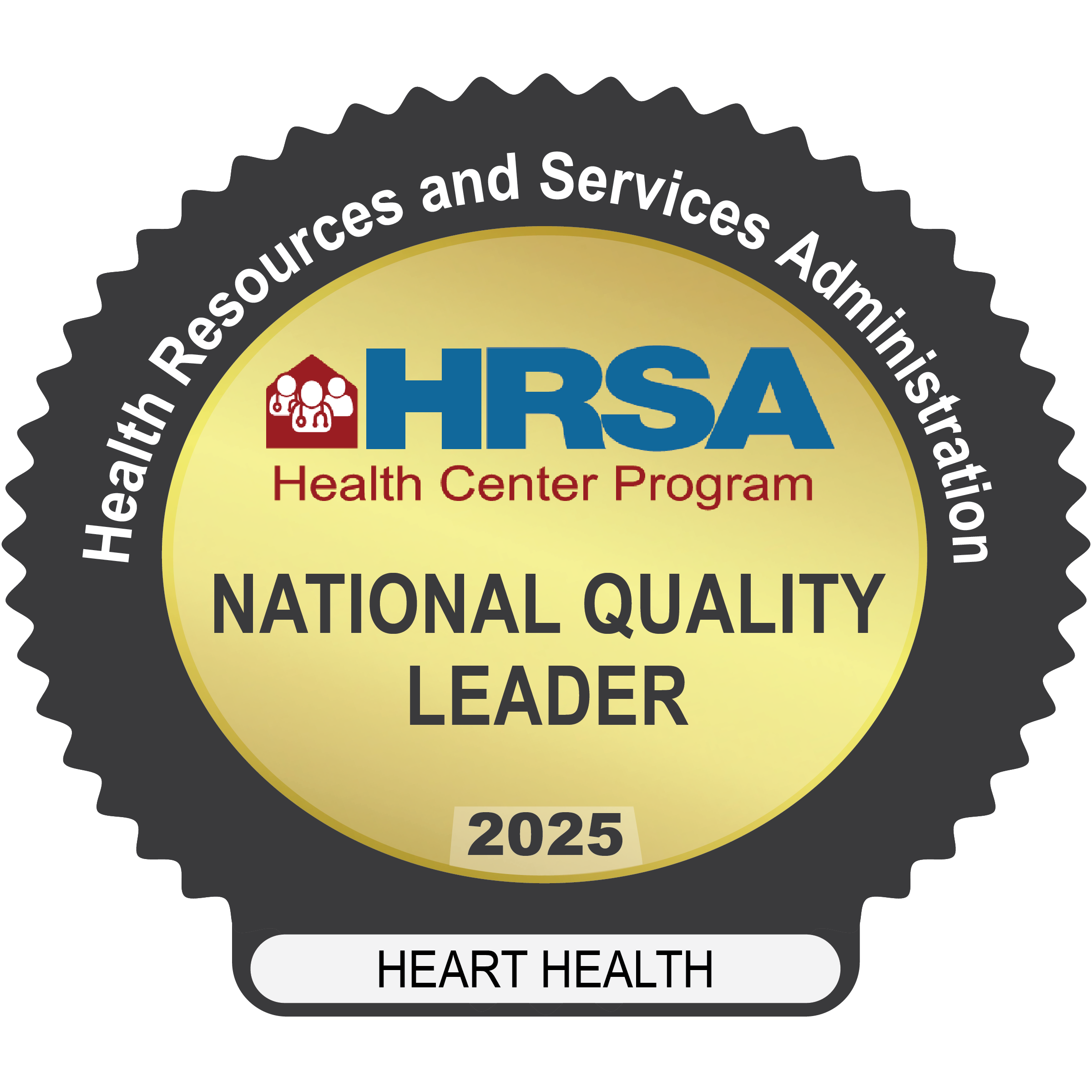
Criteria to earn Heart Health badge:
Meet or exceed three of the four measure targets, which are based on the Million Heart Goals (PDF - 976 KB)
| Measure | Target |
|---|---|
| Tobacco use: screening and cessation intervention | 80.0% |
| Ischemic Vascular Disease (IVD): use of aspirin or another antiplatelet | 80.0% |
| Statin therapy for the prevention and treatment of cardiovascular disease | 80.0% |
| Controlling High Blood Pressure (hypertension control) | 80.0% |
2025 Health Center Quality Leader (HCQL) badges
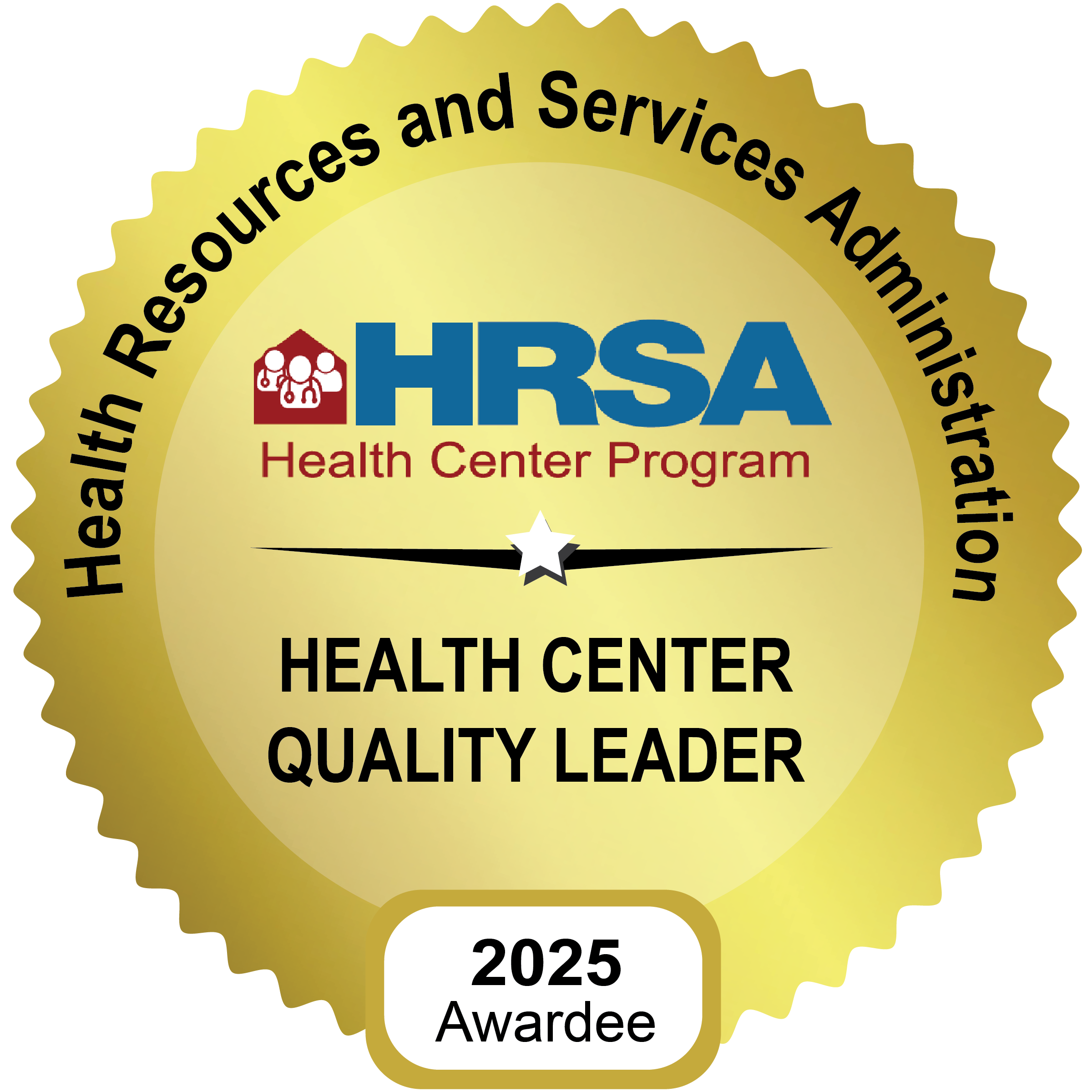
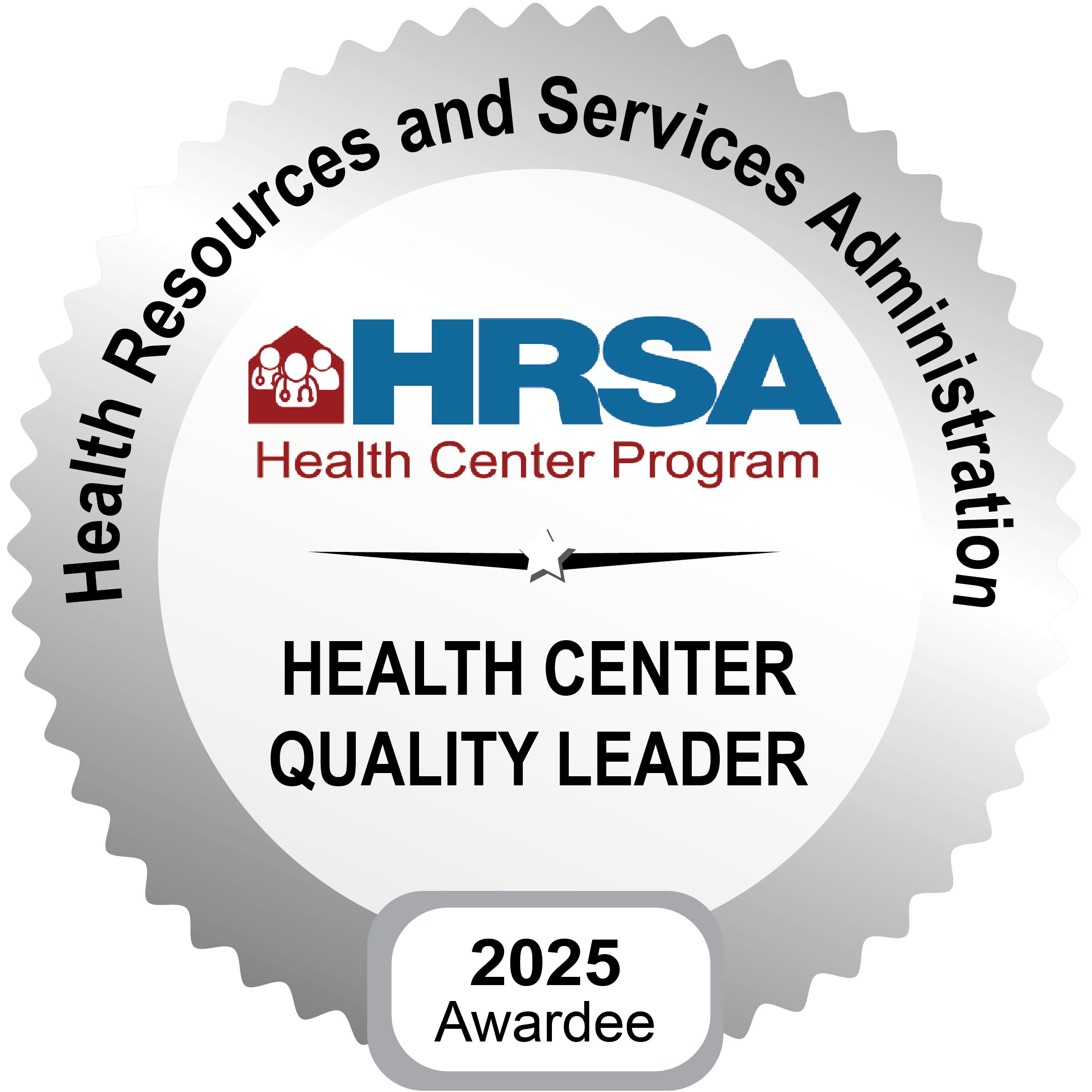
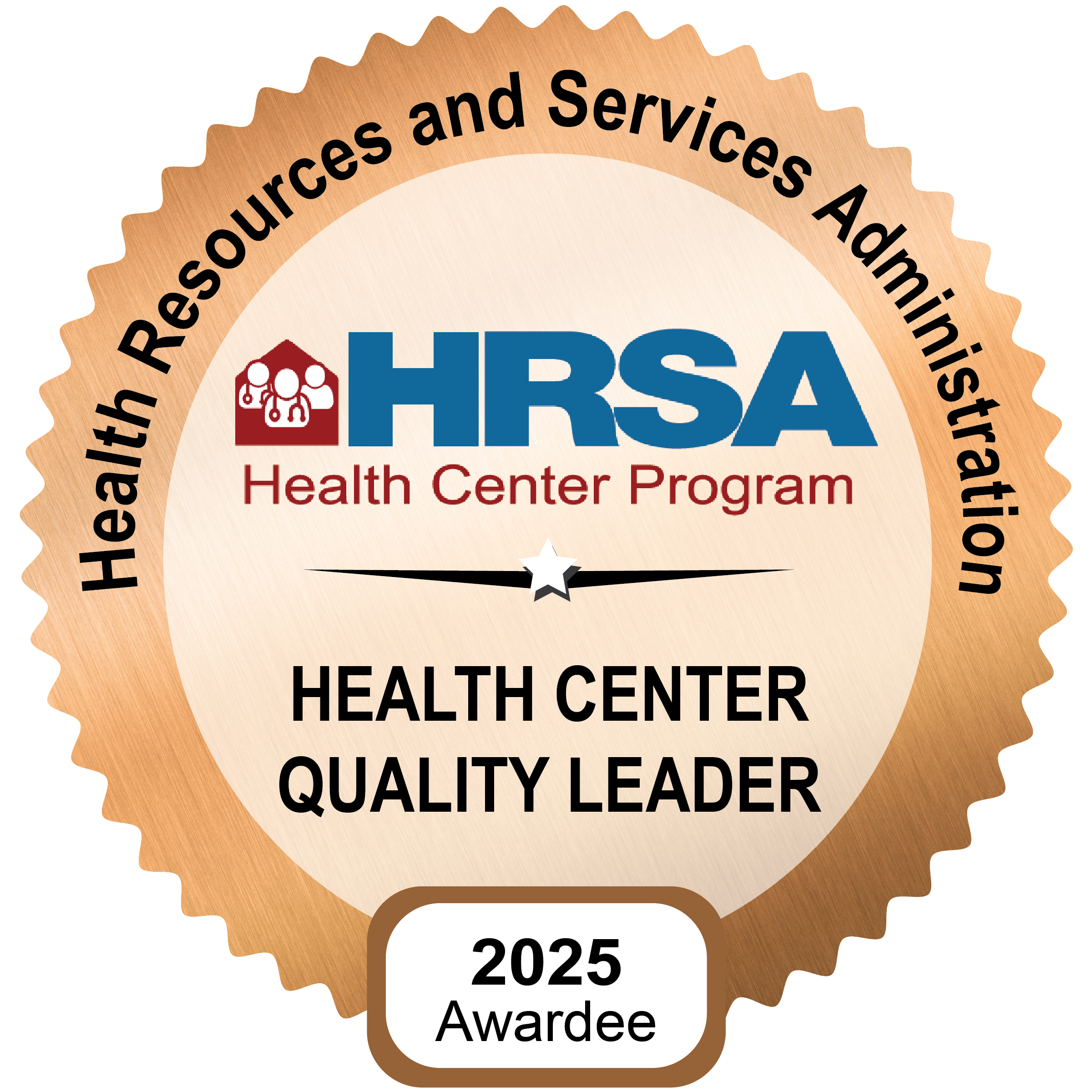
To earn HCQL badges, health centers must have the best overall CQM performance based on average Adjusted Quartile Rankings (AQR). AQR calculations use data from the latest Uniform Data System (UDS) reporting period. We award HCQL badges to health centers with AQR averages in the top three tiers (top 30%).
| HCQL Badge | Decile of AQR Average |
|---|---|
| Gold | 1st tier (top 10%) |
| Silver | 2nd tier (top 11-20%) |
| Bronze | 3rd tier (top 21-30%) |
Note: We use the latest UDS data to calculate AQRs each year. Tier cutoffs may change every year, and adjusted quartiles may not be consistent from year to year.
Other CHQR badges
2025 Preventive Health badge
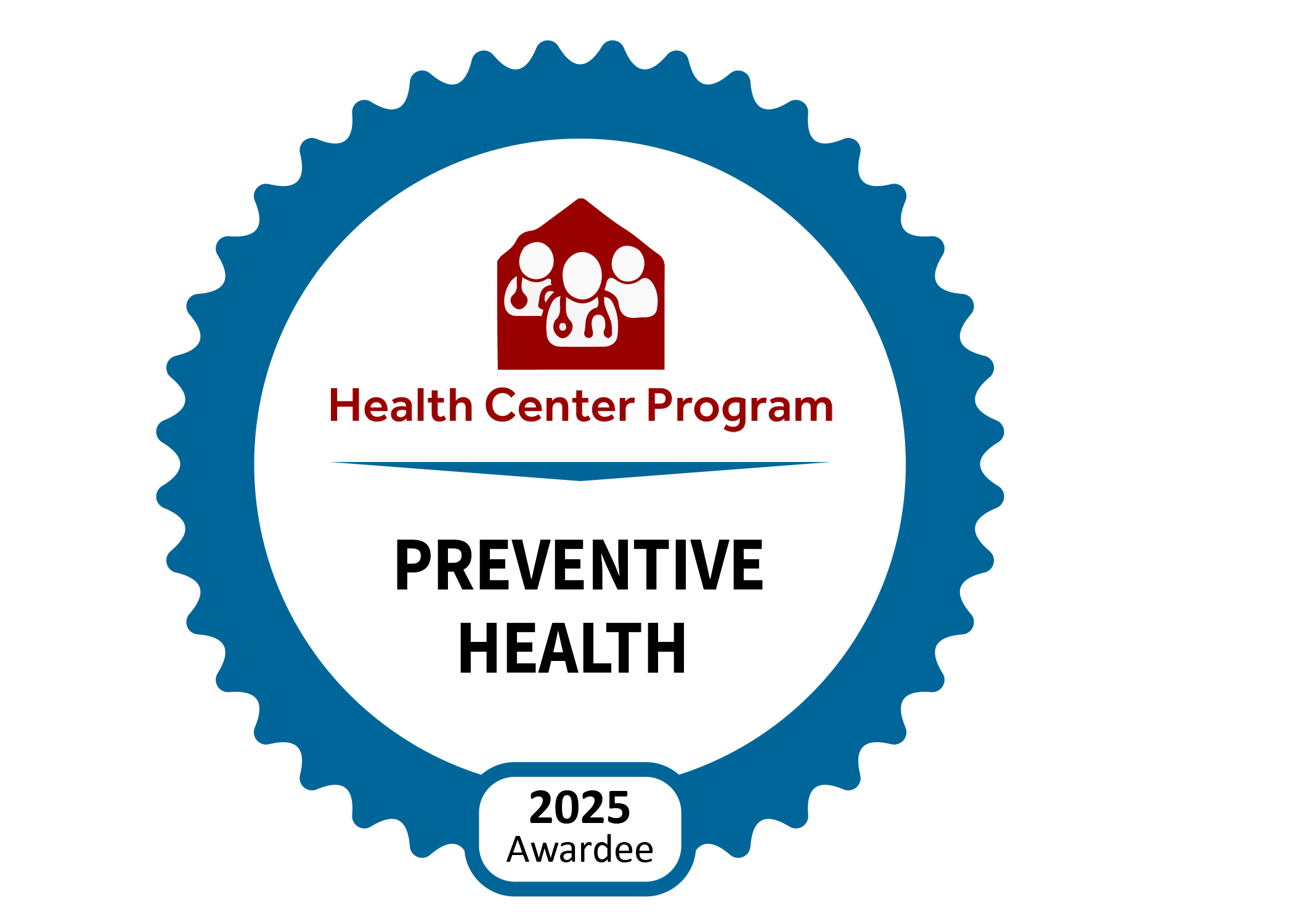
Criteria to earn Preventive Health badge:
Meet or exceed five of the ten measure targets:
| Measure | Target |
|---|---|
| Dental sealants for children between 6-9 years |
76.9% |
| Weight assessment and counseling for nutrition and physical activity for children and adolescents |
85.1% |
| Childhood lead test screening (ages 9 to 72 months) |
28.6% |
| Childhood development screenings and evaluations (limited to patients who are less than 18 years of age) |
20.8% |
| Screening for depression and follow-up plan |
85.8% |
| Tobacco use: screening and cessation intervention |
80.0% |
| Adult Body Mass Index (BMI) screening and follow-up plan |
86.0% |
| Breast cancer screening |
80.3% |
| Cervical cancer screening |
79.2% |
| Colorectal cancer screening |
72.8% |
2025 High-Value Care badge
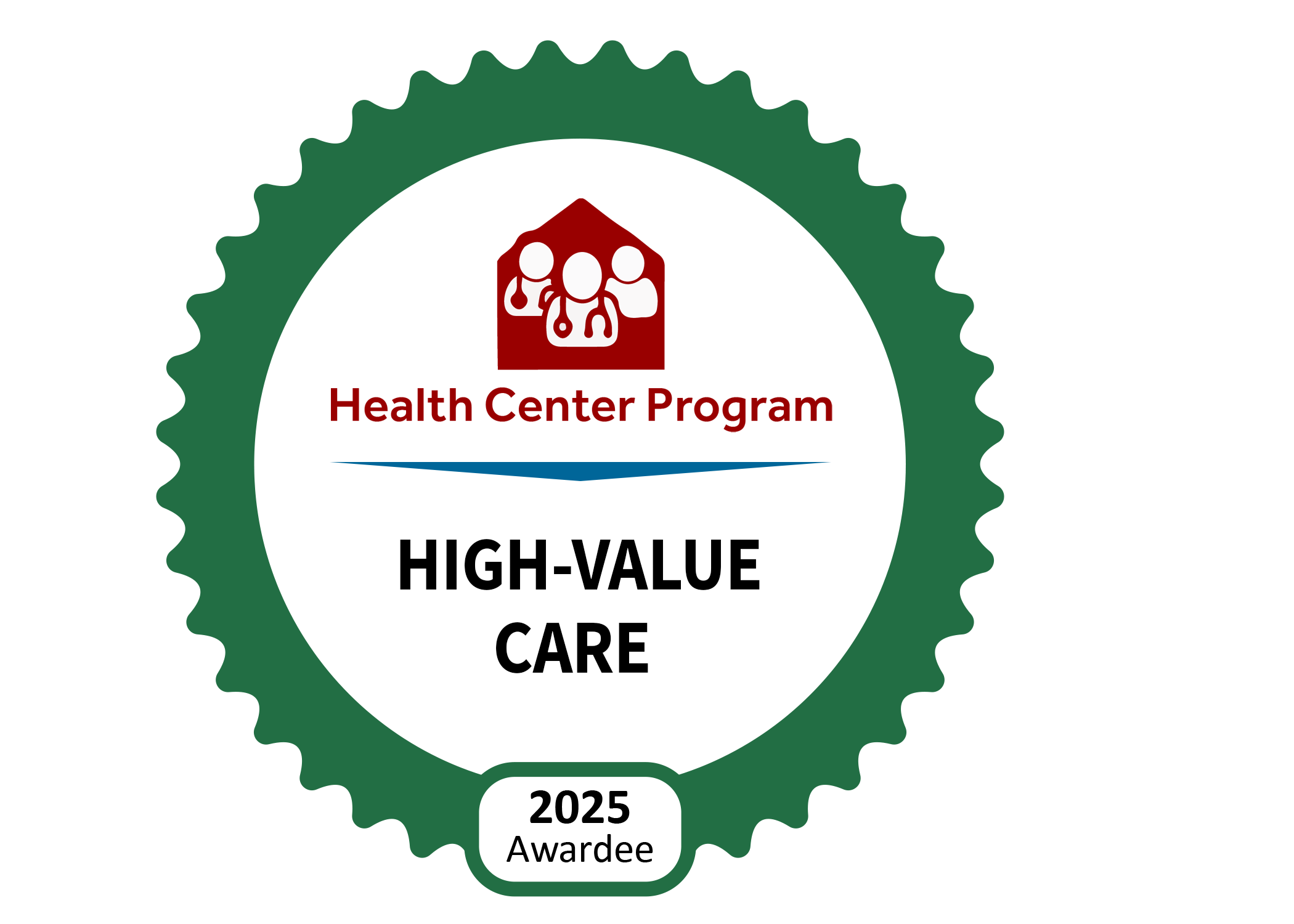
Criteria to earn High-Value Care badge:
Meet or exceed the Quality Score: 18.0 (Top 20% of 2023 and 2022 UDS)
AND
Meet or fall below the Percentage Cost Growth Benchmark: 2.54% (Top 30% of 2023 and 2022 UDS)
How did health centers qualify?
We used data from the last two UDS reporting years to create a Quality Score and a Percentage Cost Growth Benchmark.
- Quality Score: Points are assigned based on the health center’s 12 most improved CQMs. More points are given for greater improvements.
- Percentage Cost Growth Benchmark: Based on the growth rate of total costs per patient. The cost growth percentage for a health center includes all costs and is adjusted for inflation.
2025 Improving Health Care Access badge
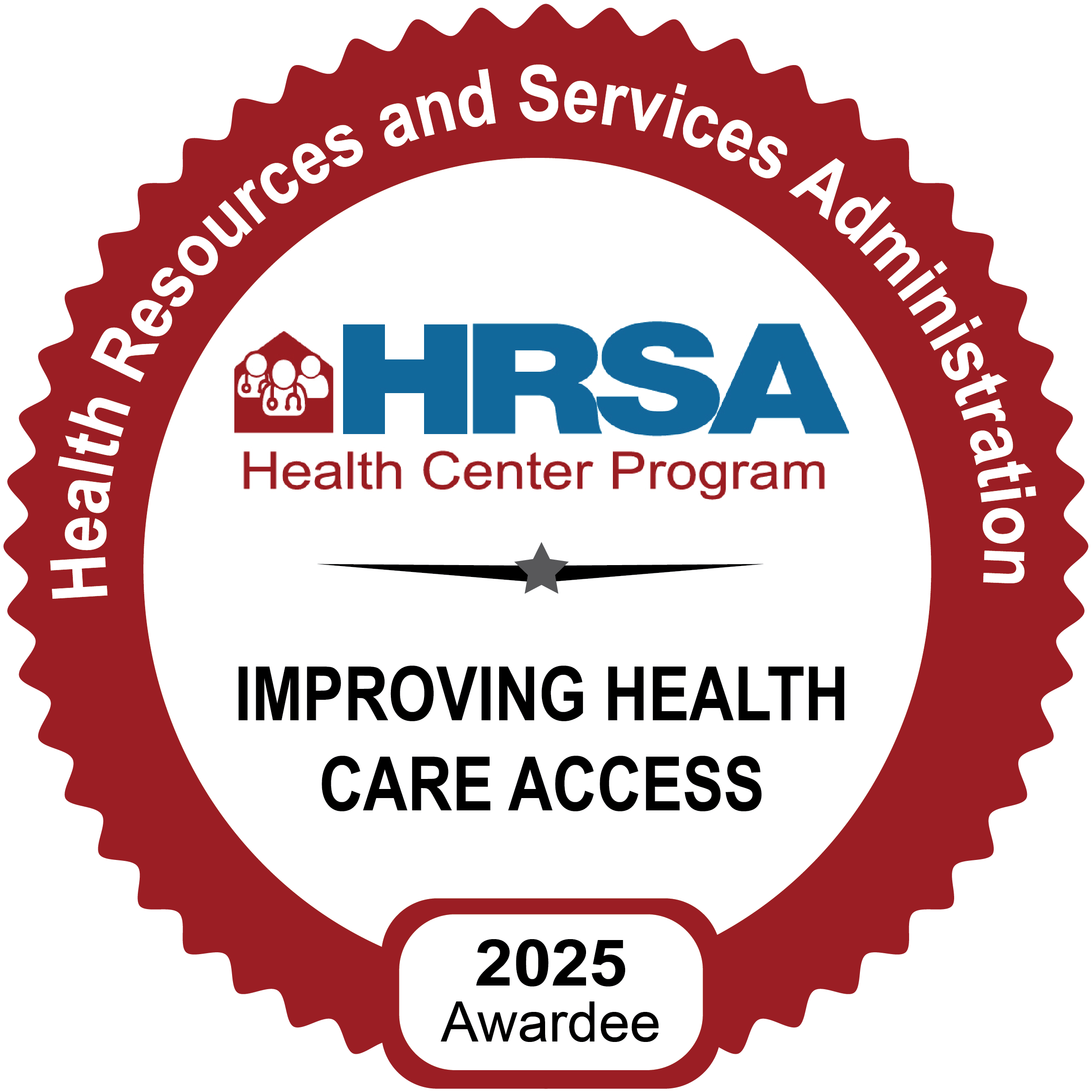
Criteria to earn Improving Health Care Access badge:
- Achieve at least one of these:
- Earn at least one HCQL or NQL badge.
- Improve by at least 15% in one or more CQMs in back-to-back UDS reporting years.
- Increase by at least 5% in back-to-back UDS reporting years.
- Total patients.
- Patients receiving mental health, substance use disorder, vision, dental, or enabling services.
How did health centers qualify?
We used data from the last two UDS reporting years (Table 5: Staffing and Utilization).
2025 Advancing HIT for Quality badge
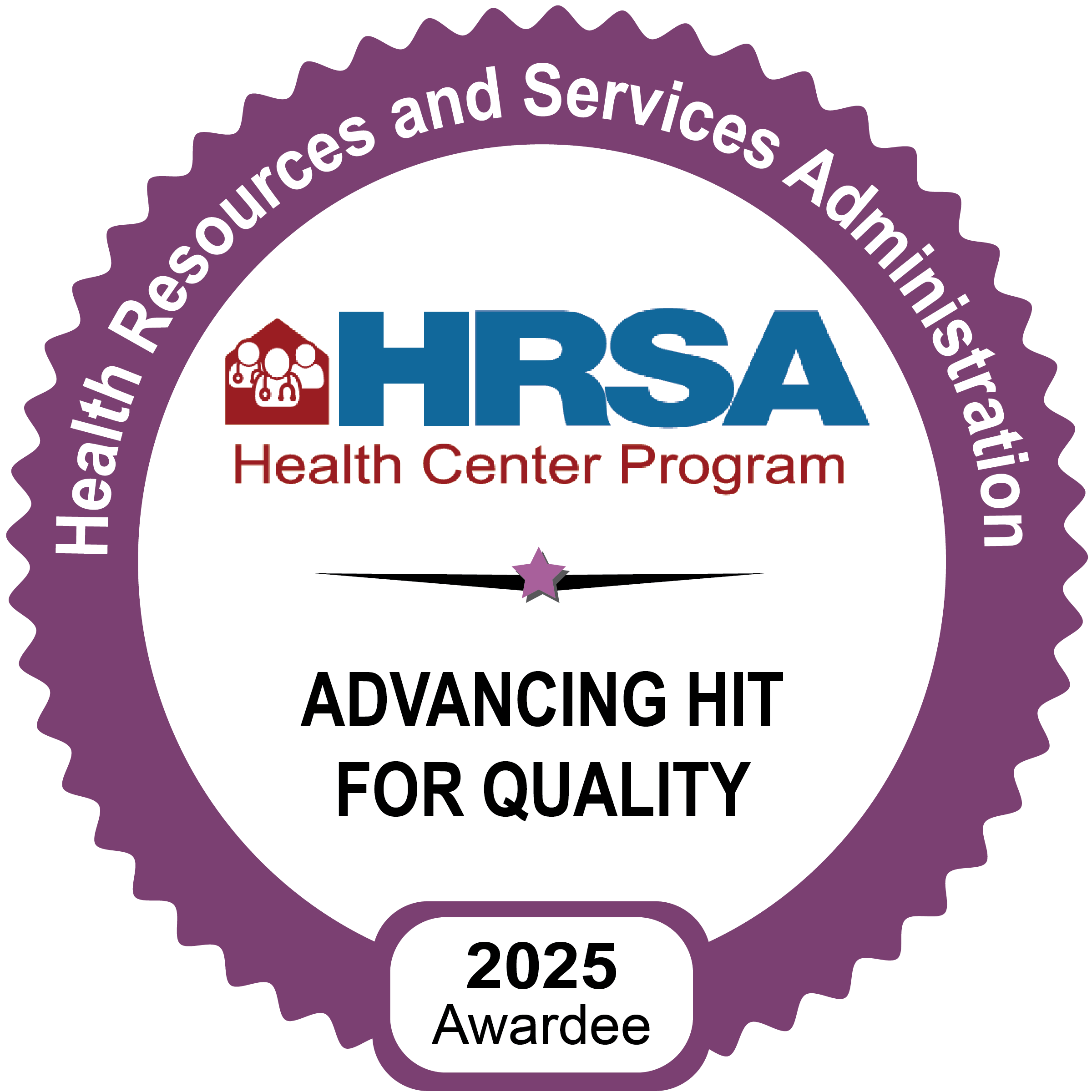
Criteria to earn Advancing Health Information Technology (HIT) for Quality badge:
- Offer telehealth services.
- Exchange clinical information online with key providers' health care settings.
- Engage patients through HIT.
- Collect data on patient health related needs.
How did health centers qualify?
We used UDS data from the latest reporting year (Appendix D: Health Center Information Technology Capabilities and Appendix E: Other Data Elements).
How do we view badge awards?
- View the CHQR Dashboard.
How do we request a high-quality badge image?
Fill out the BPHC Contact Form. Select:
- Uniform Data Systems (UDS)
- Community Health Quality Recognition Badges (CHQR) badges
- Requesting a badge image or certificate
What if we have a question?
- Review the Community Health Quality Recognition Frequently Asked Questions
- Fill out the BPHC Contact Form. Select:
- Uniform Data System (UDS)
- Community Health Quality Recognition (CHQR) Badges
- Verifying CHQR badge eligibility or criteria